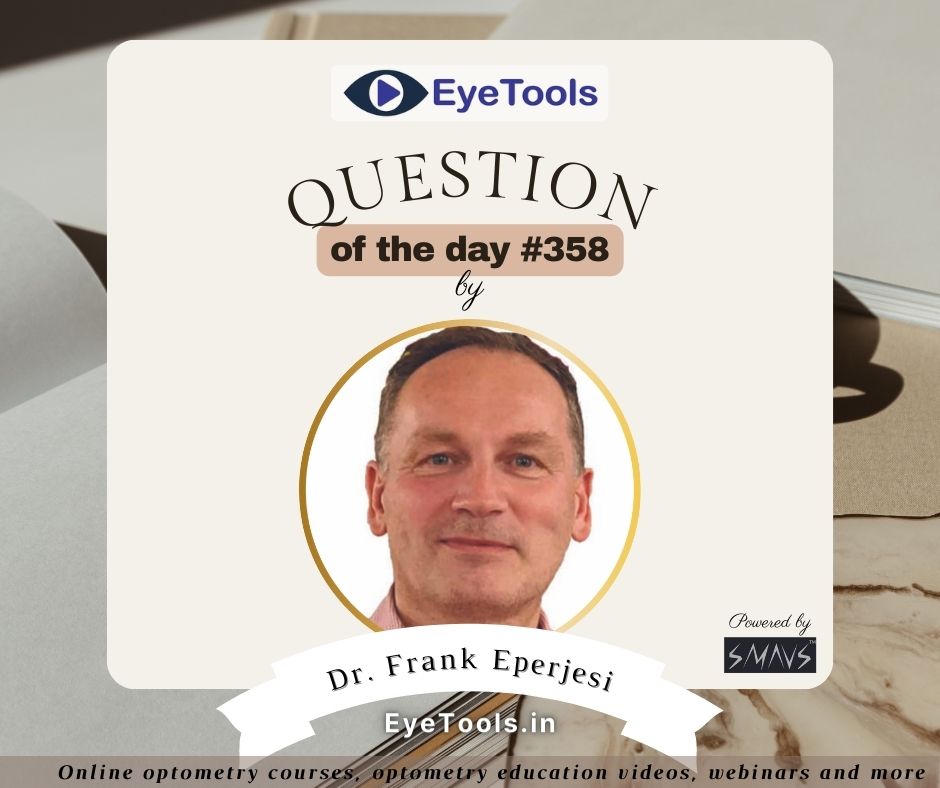
Welcome to question of the day #358
I am an eye care specialist working in community practice.I employ other eye specialists. A few of them are very reluctant to recommend anti-reflection coatings, photochromic lenses and thinner and lighter lenses. When I look at the clinical records I think there is clinical justification for many of the patients to be recommended these lens features. What should I do?
I read a very interesting article on personality and eye care specialists recently. You can find it here if you want to read the entire article https://modernod.com/articles/2021-nov-dec/your-mind-in-your-business-a-positive-sum-approach-to-patient-care?c4src=article:infinite-scroll
My interpretation of the article is that many optometrists have personality types known for being warm-hearted, responsible, and reserved, highly agreeable in nature and low in positive emotions, as well as by traits such as sociable, lively, and active. Often portrayed as being kind in excess and conflict averse.
Stress begins to develop when a system attempts to be in two places at the same time. Eye care specialists’ personality becomes stressed when working with patients some of whom can afford advanced lens features and other patients can’t. Some eye care specialists might not recommend advanced lens features to any patients if some of them are perceived not to be able to afford these features. Some eye care specialists might not recommend advanced lens features for fear of conflict if patients do not perceive any visual or cosmetic benefit from those lens features. Some eye care specialists become uncomfortable or even guilty at the idea of selling and caring at the same time.Some eye care specialists overcome this discomfort or guilt by explaining the advanced lens features and leaving it to the patient to decide which ones if any to have. Giving patients options moves the practitioner away from being accountable, selecting a finite treatment, and standing behind it. There is a false assumption that patients understand and are able to make clinical decisions as well as eye care specialists do. Patients left to choose themselves may lose trust in their eye care specialist. Not recommending advanced lens features damages the relationship with the patient and also the long-term prosperity and sustainability of the practice. Here are some recommendations to help reduce the imbalance between selling and caring.
Focus less on patients’ expectations of your recommendation. Focus on objective decision making based on clinical experience, knowledge and your readings. Be prescriptive and make you recommendations clearly and confidently.
‘You have cataract and macular degeneration. People with those conditions see better with an anti-reflection coating and when outside with lenses that get darker in the sun. They will stop glare, improve your vision, make your eyes more comfortable, and protect your retina by slowing down further deterioration.’
Eye care practitioners can be further helped by being provided with short (one page) summaries of why anti-reflection coatings and photochromic lenses can help visual function leaning into any research evidence that is available.



1.jpg)



.jpg)
.jpg)



_(Instagram_Post).jpg)
.jpg)
_(1080_x_1080_px).jpg)


with_UP_Cabinet_Minister_Sh_Nand_Gopal_Gupta_at_OpticsFair_demonstrating_Refraction.jpg)
with_UP_Cabinet_Minister_Sh_Nand_Gopal_Gupta_at_OpticsFair_demonstrating_Refraction_(1).jpg)

.jpg)








.jpg)



.png)




